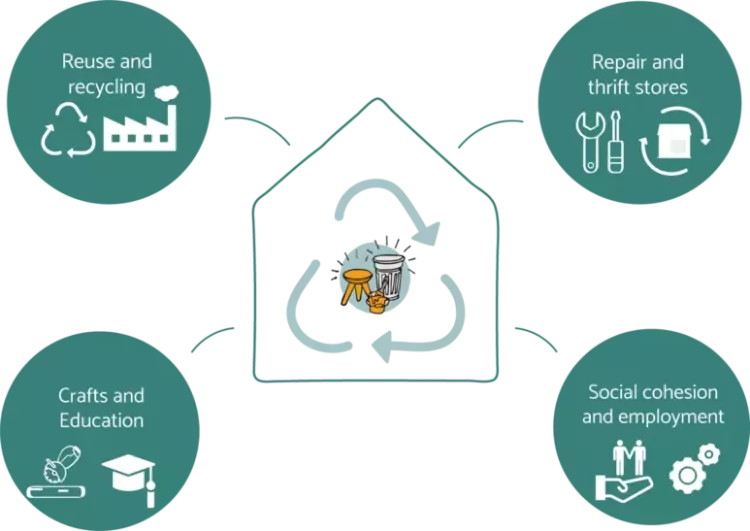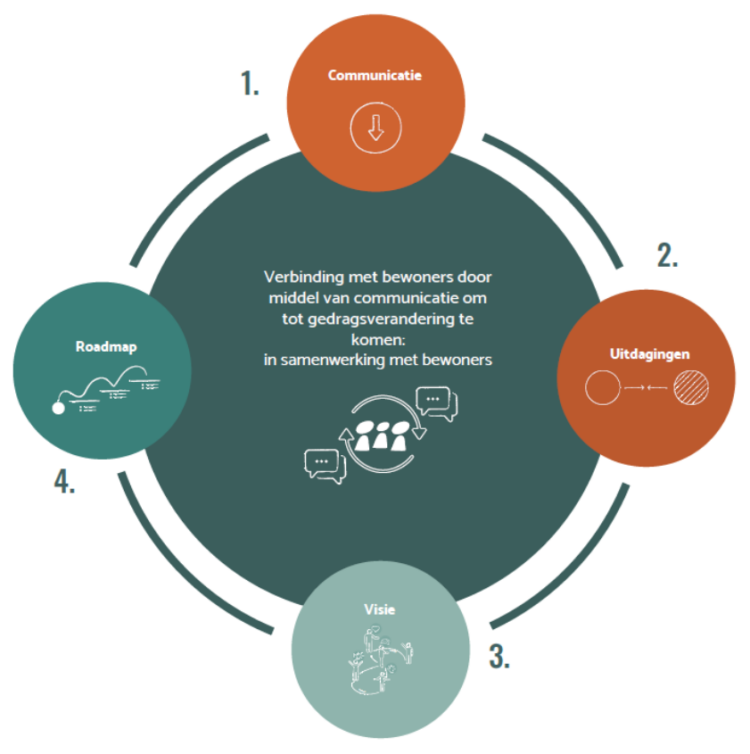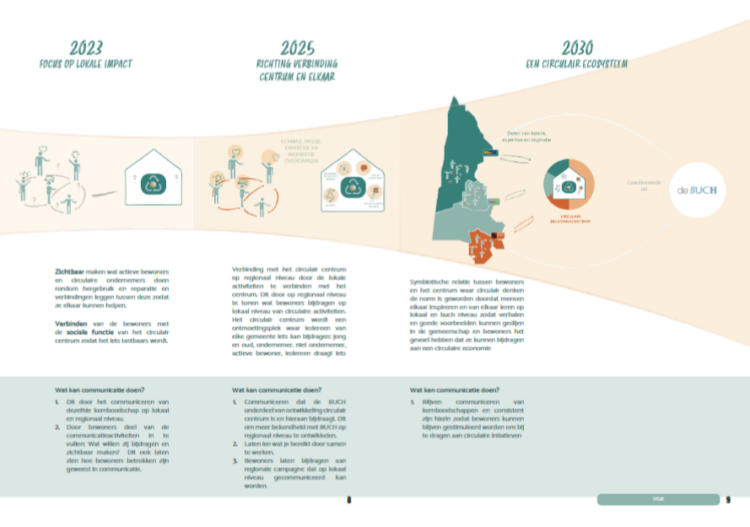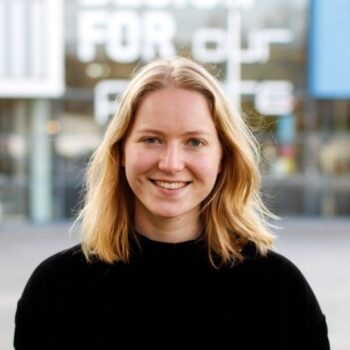Towards an inclusive and circular HUB
TU Delft's blog ‘Discover Delft Design’ featured Jacoba’s graduation project! In the project, she tackled the challenge of how to stimulate residents to participate in and visit a regional circular center to promote repair and reuse activities.
In municipalities, resident engagement is vital because public policies on environmental concerns can only be relevant when they involve all stakeholders. However, in many instances, there is a lack of clear and consistent communication. As a result, residents do not feel involved and are not stimulated to participate in activities supporting sustainability transitions on a regional level.
“Many [residents] are participating in repair and reuse practices and love to share their knowledge, but nothing is in place to make this visible to other non-active residents. This makes them unaware of what is possible and what the [social] norm can be.” - Jacoba Seminck
The focus of the challenges was to activate resident participation in planning a Circular Center (Center) in the municipalities of Heiloo, Uitgeest, and Bergen, in North Holland. The Center is a concept initiated by the Rijkswaterstraat and an ambition within the Circular Economy Implementation Programme 2019-2023, which aims to have a national network of circular craft centers by 2030. The Center is part of the circular economy pillar, one of the five pillars in the climate programme of this joint-municipality group. The vision of the three municipalities is a center that “focuses on repair and reuse. It should be a vibrant place in the municipality where initiatives, residents, circular entrepreneurs, education, thrift stores and repair [interact synergistically]. It should be a place that invites residents to think in a circular manner and see the value of products and resources by means of participation.”

The challenge was approached by a variety of methods to develop a comprehensive understanding of the problem context. Topics of waste, circular economy, behaviour change models and good practices on encouraging residents were explored together with other activities including resident interviews, co-creation sessions and surveys. These were used to identify the drivers and barriers of residents on circular activities and their perspective and needs on the center.
A guide for key stakeholders of the climate program
The outcome of this project is a guide to help the BUCH municipalities achieve a unifying vision for the circular center that is shared by all stakeholders including residents. The guide consists of four communication elements: 1) The importance of communication in encouraging residents, 2) The challenges in the BUCH context and how to deal with them 3) A strategic vision offering major milestones to take 4) A roadmap with actionable steps to achieve the vision.


The guide aims to actively involve residents in activities for preparing the circular center. Each element can be used separately depending on the type of conversation context. The solution contributes to the problem by offering support for the municipalities to involve residents in the discussion and planning so that they feel a sense of ownership and involvement on a local and regional level.
Read the full thesis here. Have a look here to find previous graduation theses in collaboration with DE BUCH.
This blog is a repost of the article on Discover Delft Design.
